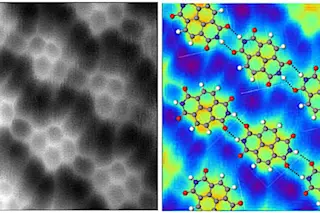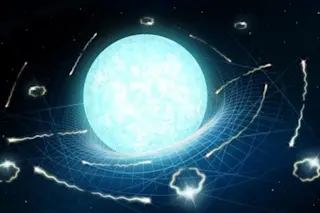In my two previous Out There posts, I showcased starkly different ways of interpreting quantum mechanics and, by extension, two starkly diffent ways of understanding the relationship between us humans and the universe around us. Sean Carroll at Caltech argues on the side of the Many Worlds Interpretation, which holds that reality is constantly splitting off into different versions. Chris Fuchs at the University of Massachusetts at Boston speaks out on behalf of QBism, an interpretation which observers participate in a single reality through interaction with their surroundings.
But these are far from the only possible ways to make sense of quantum mechanics. The varied ideas are complicated and subtle, but what I find fascinating is the concrete concerns that motivate them. Theoretical physicists want to know the same kinds of things that you and I want to know (well, I do at least). Can there be other realities, or ...














